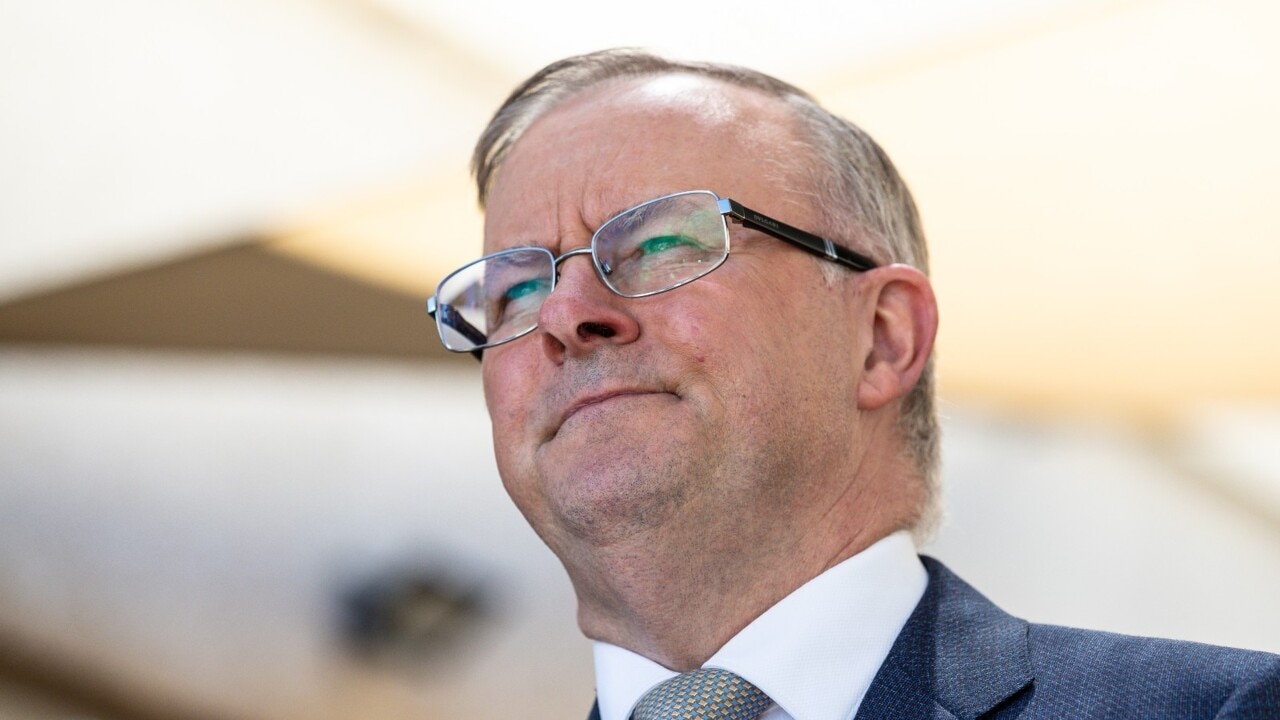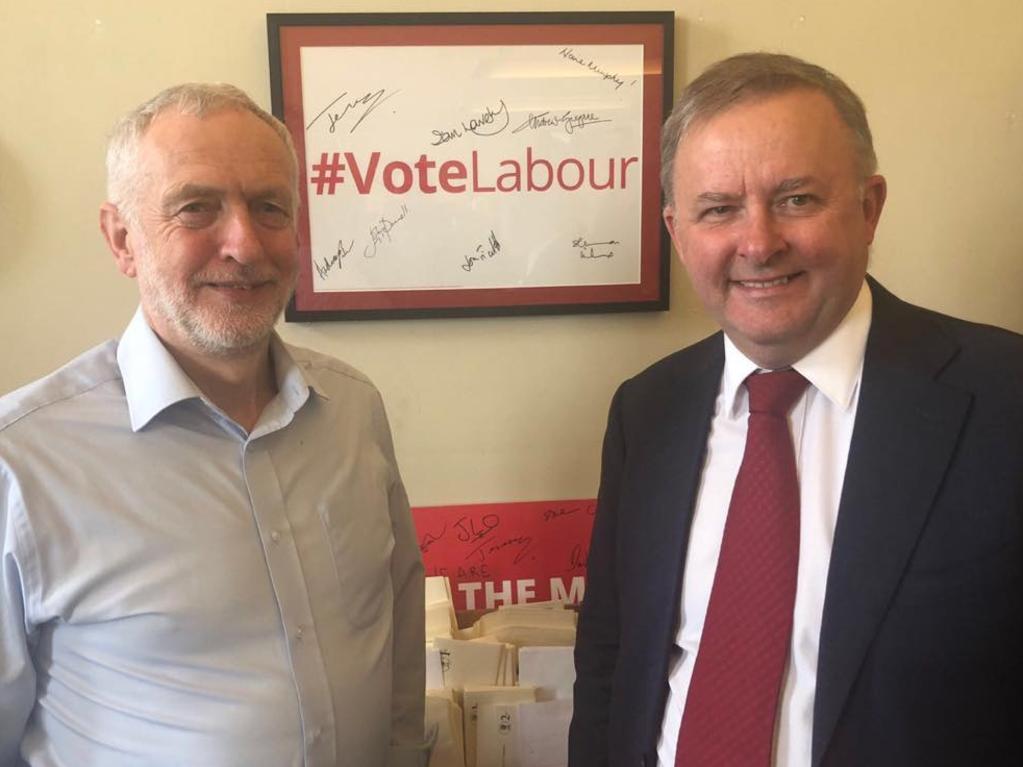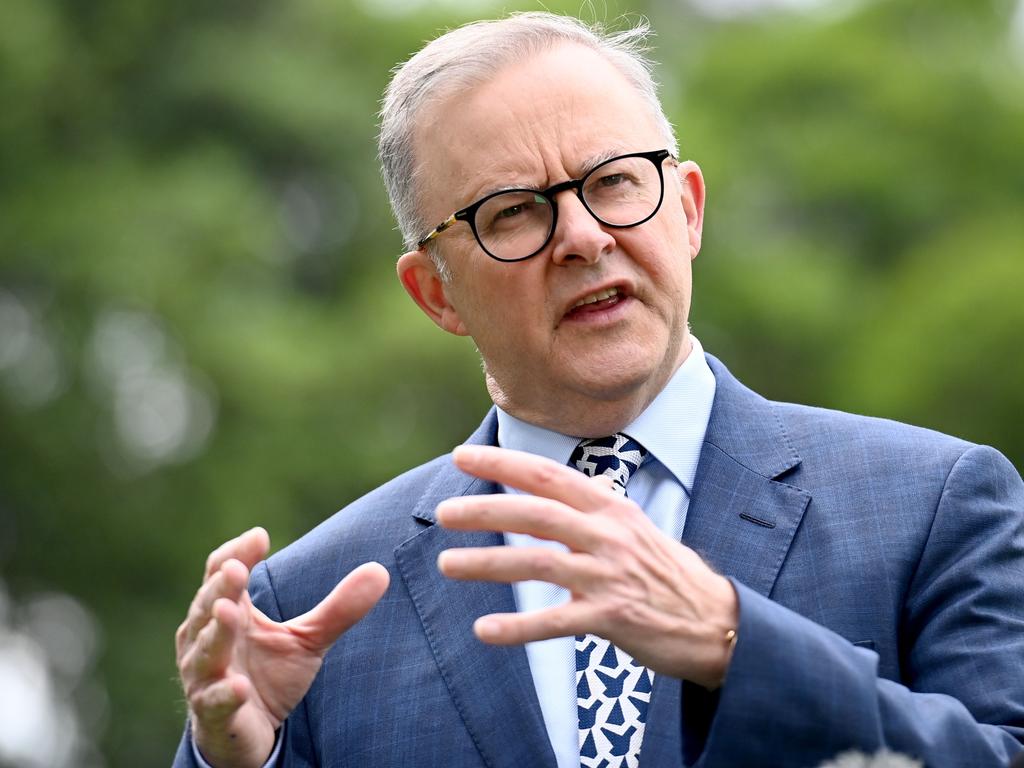Fast trains and big ships put Anthony Albanese in slow lane
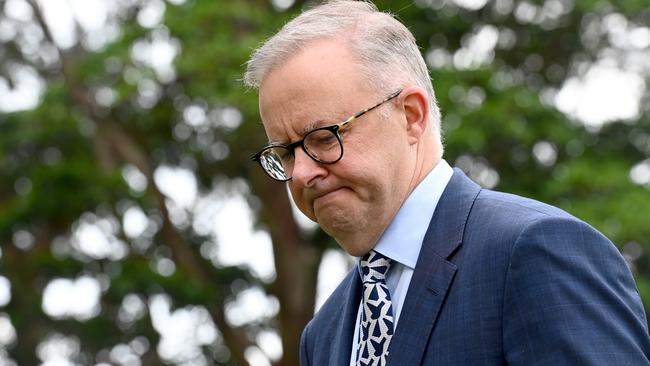
Anthony Albanese’s tentative moves to break out from Labor’s small-target strategy for the upcoming federal election have got off to a shaky start. Whether it is electric cars, very fast trains or an emergency domestic shipping fleet, the measures announced to date by Labor have tapped into genuine community sentiment but missed the mark in policy terms.
As part of its Powering Australia agenda, the ALP has pledged to accelerate the take-up of electric vehicles by changing tax arrangements and removing import tariffs where they still apply. The package has left the electric vehicle industry cold.
And as Energy Minister Angus Taylor outlines on Wednesday, 70 per cent of car imports are exempt from tariffs because of free trade agreements already in place. This will rise further given a free trade deal has just been signed with Britain. Three of the five top-selling EVs have no import tariffs. Labor’s plan to exempt the purchase of EVs from fringe benefits tax as part of salary packages will shift the cost to taxpayers, many less able to afford the luxury of buying a new electric vehicle themselves.
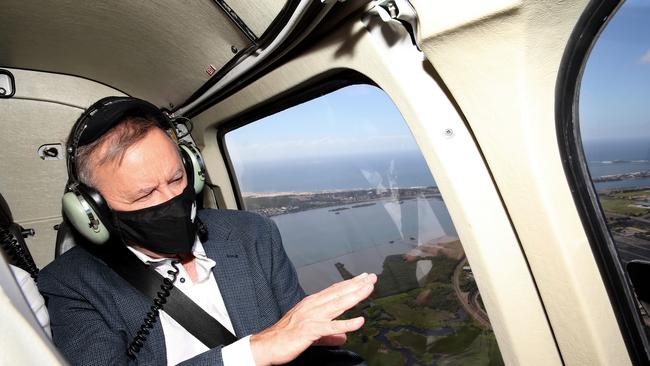
There is a similar lack of precision in Labor’s plans to speed rail travel between Sydney and Newcastle, something that should be primarily the concern of the state rail authority rather than the national government. The Opposition Leader has presented the plan as the first stage of a future east coast fast rail line that would skirt several marginal Liberal-held seats in the upcoming poll. But Labor’s plan is in essence a reheat of long-held dreams to link the eastern seaboard cities with very fast trains that have been shown to lack commercial merit. The era of cheap air travel and more frequent flights has lessened the case for long-distance rail. In any case, Labor’s rail plan is a slow burn rather than rapid response. The policy meat on Mr Albanese’s high-speed rail plan is a $500m down payment to acquire a corridor.
It is a similar story with a proposed “strategic fleet” of up to 12 ships to ensure the nation has access to fuel supplies and other essential imports. The plan taps into genuine concerns of resource security in a strained geopolitical environment. But the real intent is a push back by Labor against the replacement of Australian-flagged ships and unionised crews with foreign vessels and cheaper workers from overseas. Maritime unions would be given a seat on a taskforce to provide advice on the establishment of the fleet, which Mr Albanese assures would be privately owned and operate on a commercial basis.
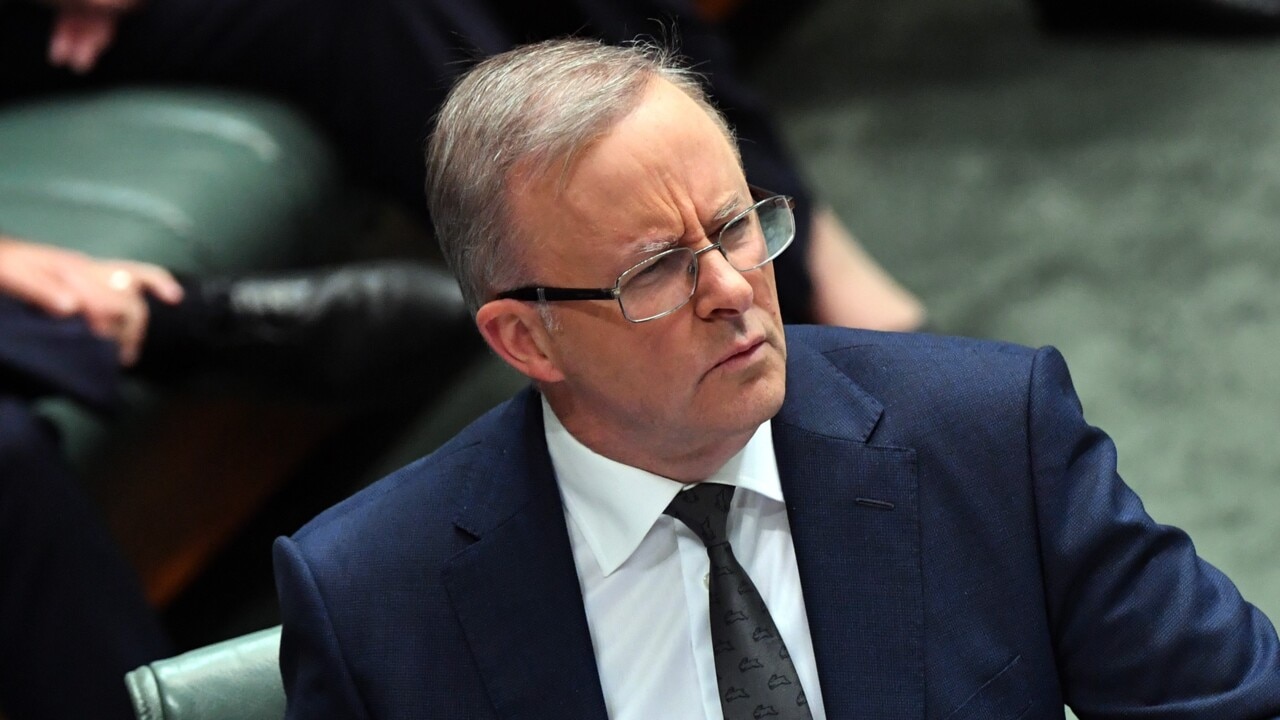
As Eric Johnston writes on Tuesday, the Opposition Leader’s planned fleet of supertankers to protect supply security will do little to alleviate the supply squeeze, and the boats soon will face the same operational headaches slowing down every other freighter around the world.
The issues have not been about securing shipping capacity but getting the containers to put the goods in, and then getting those goods through local ports. For future fuel security, the ALP would be better advised looking closer to home to encourage the discovery and development of domestic reserves of oil and gas.
Mr Albanese is to be congratulated for seeking to put a set of policy ideas on to the table before the election is called. But what is needed is greater detail from both parties about what can be done to improve the lot for all Australians as we progress out of the constraints of the Covid pandemic and set about repaying the high levels of debt that have been accrued. This involves more than tax breaks for privileged drivers, rebuilding an effectively nationalised shipping fleet or building rail lines past marginal electorates. Labor needs to persuade voters that its tax-and-spend ways are behind it and that a new era of class war envy is not hiding just below the surface, ready to appear should Labor be successful at the polls.
More Coverage
